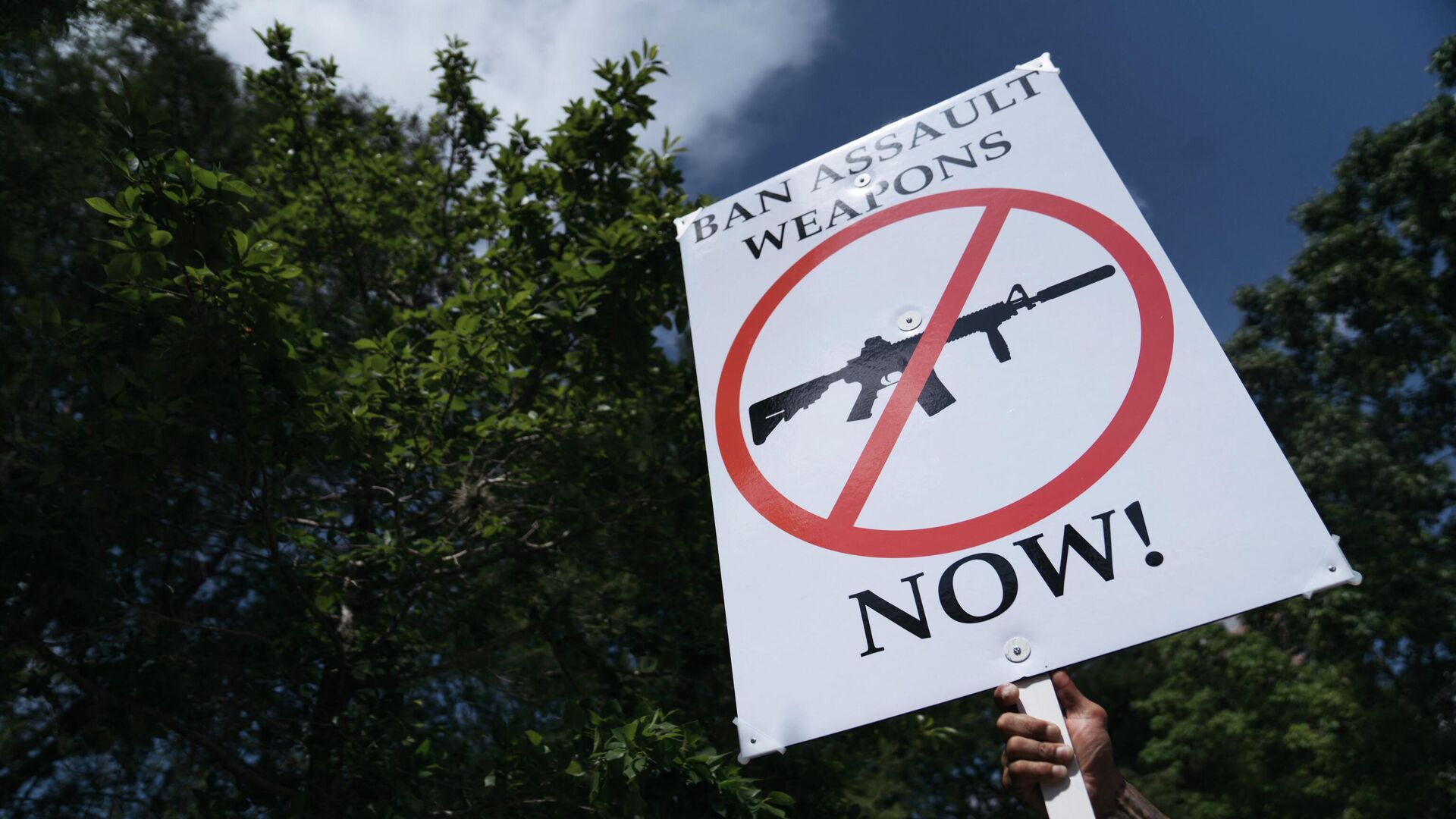Why New Gun Control Measures Have 'No Chance' in US Senate

© AFP 2023 / ERIC THAYER
Subscribe
MOSCOW (Sputnik), Kirill Krasilnikov - The newest comprehensive gun control bill approved by the US House of Representatives on Wednesday is not going to make it through the Senate, which is currently working on its own bill, experts told Sputnik.
Discussions in Congress on gun violence and related firearms laws increased significantly following a series of high-profile mass shootings in the United States, including an elementary school shooting in Texas that killed 21 and a supermarket shooting in New York that killed 10.
The House approved on Wednesday a gun control legislation increasing the purchase age for certain firearms and promoting safe gun storage among other measures. It was followed on Thursday by a separate gun control bill to create a federal version of so-called "red flag" laws that restrict firearms access to individuals reported as a threat.
Both initiatives have virtually no chance of passing through the Senate where the Democrats hold the 51-vote majority, counting the vice president's vote, as it most likely will be blocked by Republican lawmakers, who are convinced these bills run contrary to the Second Amendment of the US Constitution, which guarantees the rights of Americans to keep and bear arms.
"I doubt that bill will make it through the Senate, in which there are stronger advocates for gun rights than in the House of Representatives. A bipartisan committee in the Senate is trying to hammer out a compromise bill that provides for more extensive background checks for would-be gun purchasers and more available information about those who might be dangerous gun owners," Paul Gottfried, a political theorist and former Horace Raffensperger Professor of Humanities at Elizabethtown College, said, noting that the Senate has "stronger advocates for gun rights than in the House of Representatives."
He also dismissed the notion of the National Rifle Association (NRA) influencing senators who support gun ownership as they are just representing the wishes of their pro-gun voters.
"Politicians who are for gun rights receive very little money from this organization, which represents the right to bear arms. The NRA is almost bankrupt and therefore does not really influence votes, contrary to what the mainstream media in the US keep telling us. Support for gun rights is widespread among voters, particularly but not exclusively in rural areas," Gottfried stated.
Robert Singh, a professor of politics at Birkbeck, University of London, said that "this is the strongest gun control measure passed by the House for decades - but there is no chance it will pass the Senate," drawing attention to the latest polling, which shows that 7 in 10 Republican voters prioritize protecting gun rights over curbing gun violence.
"Since many of them vote on this single issue - unlike advocates of gun control, who consider other issues as well - it makes no sense for most Republican lawmakers to side with the forces for gun control," Singh said.
At the same time, the Birkbeck professor went on to underscore the role of the pro-gun movement in Republican lawmakers' decision-making process, saying that "as risk averse legislators, they don't want to provoke the anger of gun rights groups like the NRA and get primary challenges."
"We are back in the usual cycle after mass shootings in America - a demand for 'something to be done,' and then nothing happening because of Republican obstructionism. There's no reason to expect anything different this time around and the midterms are unlikely to alter this. Most voters will be voting on the basis of the cost of living crisis, the price of gasoline, and other 'pocketbook' issues, not guns," Singh concluded.


